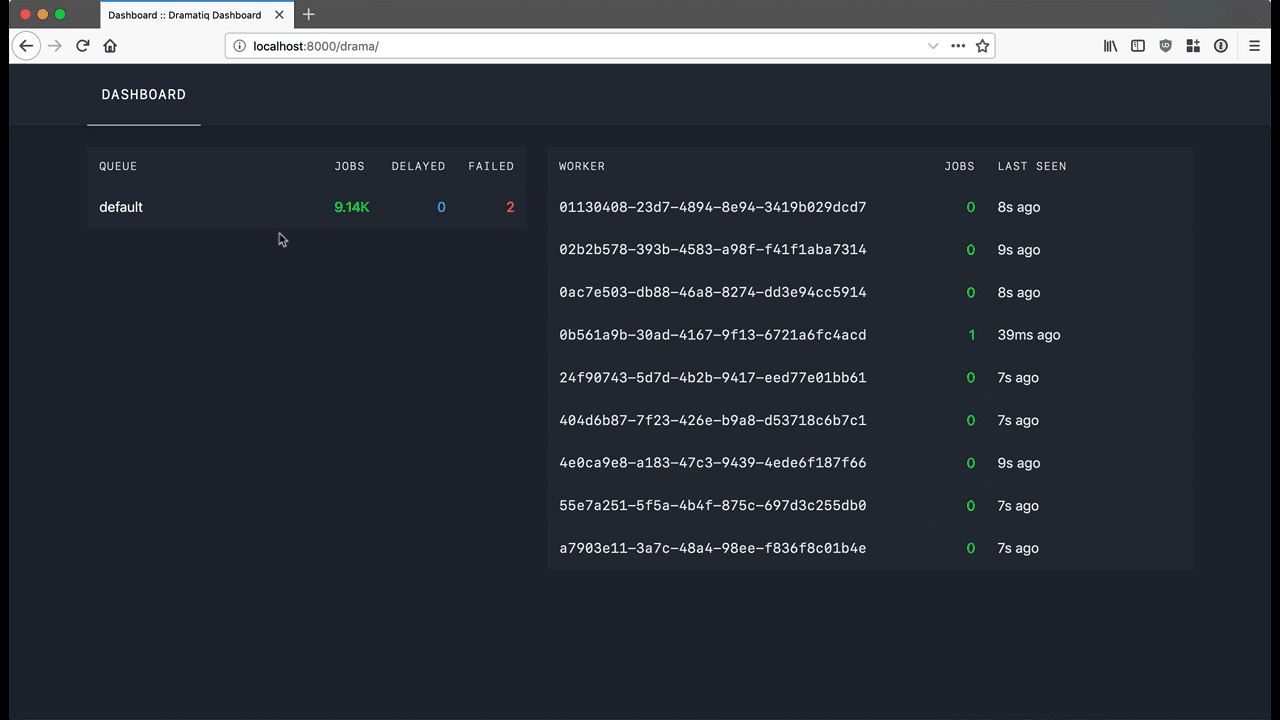A dashboard for dramatiq, specific to its Redis broker (sorry RabbitMQ users!). Very alpha stuff.
It comes in the form of a WSGI middleware, with as few dependencies as
possible (dramatiq, jinja2 and redis) so it's super easy to plug
into whatever web application you have.
pip install dramatiq_dashboard
# Assuming at some point you instantiate your app.
app = create_wsgi_application()
# Import the library, create the middleware and wrap your app with it.
import dramatiq_dashboard
dashboard_middleware = dramatiq_dashboard.make_wsgi_middleware("/drama")
app = dashboard_middleware(app)Run your app, visit /drama and you should see the dashboard.
If you don't want to wrap an existing WSGI app, you can also run the
dashboard as a standalone server. Install the WSGI server of your
choice (e.g. uWSGi, gunicorn, bjoern, etc), setup the Redis broker,
and then start DashboardApp directly.
For example, to serve the dashboard on http://127.0.0.1:8080 using
the bjoern WSGI server and a redis server on 17.0.0.1:6379, run
the following:
import bjoern
import dramatiq
from dramatiq.brokers.redis import RedisBroker
from dramatiq_dashboard import DashboardApp
broker = RedisBroker(host="127.0.0.1", port=6379)
broker.declare_queue("default")
dramatiq.set_broker(broker)
app = DashboardApp(broker=broker, prefix="")
bjoern.run(app, "127.0.0.1", 8080)Then visit http://127.0.0.1:8080/ to see the running dashboard.
Note that if you use custom queues in your application, they won't be
discovered using this approach. You'll have to either add each one of
them manually to your broker or import and pass your application's
broker to DashboardApp.
dramatiq_dashboard is licensed under the LGPL. Please see COPYING and COPYING.LESSER for licensing details.
